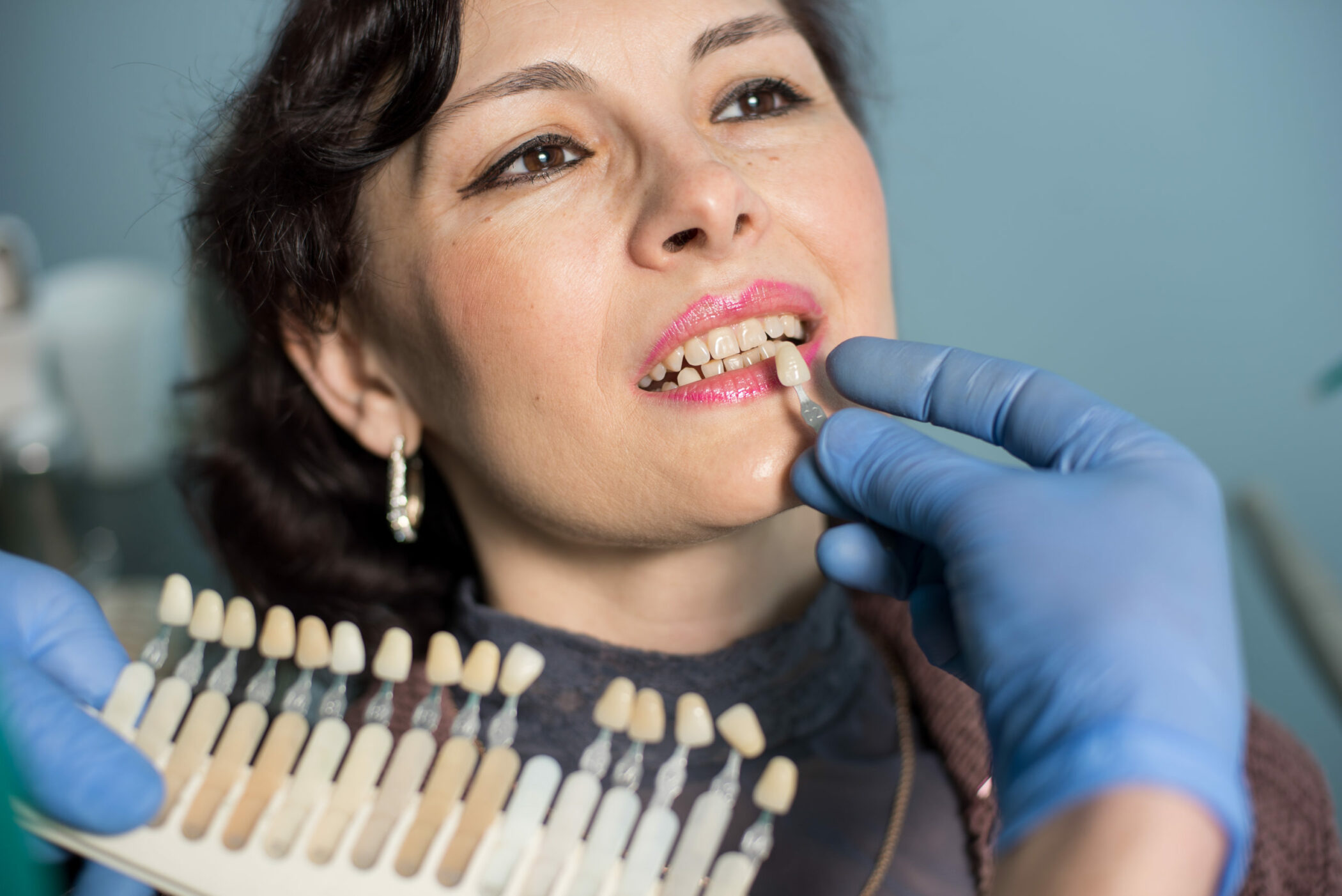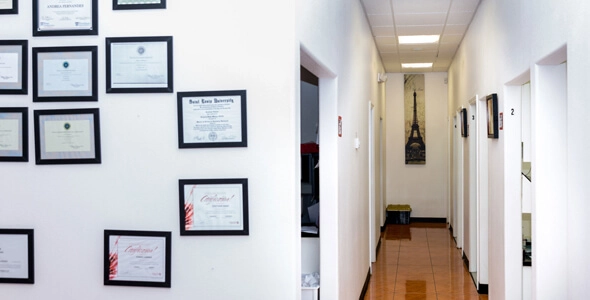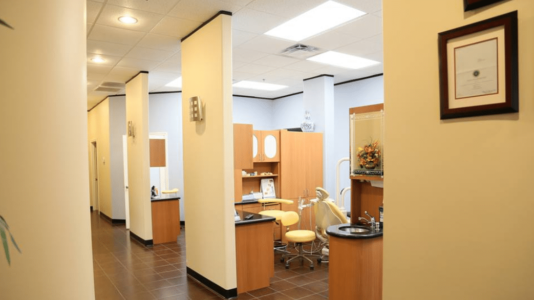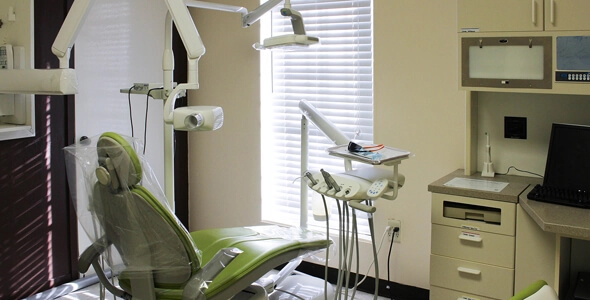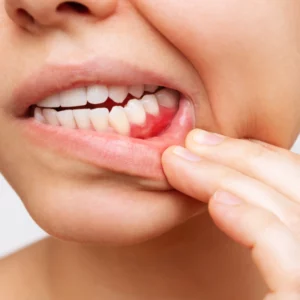While proper oral hygiene practices can help preserve natural teeth, there are millions of American adults that are missing multiple teeth or all of their teeth. Unfortunately, this can lead to oral and overall health problems. If you are among this population, it’s important to consider tooth replacement options.
A Dental Care offers several different options to replace missing teeth based on your needs and budget. In this article, we’ll explain the most common causes of missing teeth and the 5 basic options for replacement.
Common Causes of Multiple Missing Teeth
There are several common causes of multiple missing teeth:
Genetics
In some cases, missing teeth are due to genetics. There are several types of genetically missing teeth:
- Hypodontia: missing 1 to 6 teeth
- Oligodontia: missing 6 or more teeth
- Anodontia: missing all teeth
Poor Oral Hygiene
In some cases, teeth are missing due to poor oral hygiene habits and/or lack of access to quality dental care.
Gum Disease
Gum disease causes irritation and gum recession, which can cause teeth to loosen and fall out.
Trauma
Facial trauma due to automobile accidents, sports injuries, and more can cause teeth to loosen or be knocked out.
5 Dental Options forMultiple Missing Teeth
Missing teeth can lead to many oral and overall health complications. Therefore, it is necessary to replace them as soon as possible. The 5 most common options for replacing multiple missing teeth are:
Dental Implants
Dental implants are a top-tier solution because they look, feel, and function the most like natural teeth. An implant screw is placed in the jawbone, creating a stable base for an artificial tooth. Multiple implants can be used to support up to a full arch of missing teeth.
Advantages
The advantages of dental implants are:
- Looks, feels, and functions like natural teeth
- Stable, does not move around in the mouth
- Supports jawbone health and density
- Protects gums from bacteria and plaque buildup
Disadvantages
The disadvantages of dental implants are:
- Cost, average of $5,000 per implant
- Requires invasive surgery and extended healing time
- May require additional procedures (tooth extraction, bone grafting, etc)
Fixed Bridge
A fixed bridge is a hybrid option for replacing several missing teeth in a row. A traditional bridge relies on the support of the natural teeth on each side of the gap. A fixed bridge relies on dental implants placed on each side of the gap. This offers more stability for the replacement and doesn’t require alteration of natural teeth.
Advantages
The advantages of a fixed dental bridge include:
- More stable than other options
- Less expensive than replacing each tooth with a single implant
- Does not require special care considerations
- Implants should last a lifetime, bridge should last up to 20 years with proper care and maintenance
Disadvantages
The disadvantages of a fixed dental bridge include:
- Cost is higher than some options
- Requires surgery to place implants
- Bridge may need to be replaced
Resin-retained bridge
A resin-retained bridge, also known as a bonded bridge or Maryland bridge, is a composite resin or porcelain tooth that is held in place with resin or metal wings on each side. This tooth replacement is ideal for a missing front tooth. A portion of the enamel on the back of the adjacent teeth is necessary to create space for the wings to sit.
Advantages
The advantages of a resin-retained bridge are:
- Cost-effective compared to other options
- Long-lasting
- Low-risk, can be completed quickly
- Less invasive, doesn’t require much alteration of adjacent teeth
- Pain-free compared to alternatives
Disadvantages
The disadvantages of a resin-retained bridge are:
- Often requires re-bonding every 5 to 8 years
- Not suitable for molars
- Metal wing may cause discoloration of neighboring natural teeth
- Artificial tooth may not match the color of neighboring natural teeth
Removable Partial Denture
A removable partial denture is designed to replace some missing teeth. It is designed to sit on top of the gums and restores appearance and some functionality. It must be removed before bed for cleaning and to allow the gums to rest.
Advantages
The advantages of removable partial dentures include:
- Improves appearance
- Restores some functionality
- Preserves remaining natural teeth
- Easy to maintain
Disadvantages
The disadvantages of removable partial dentures include:
- Acrylic base can cause allergic reactions/sensitivity
- Requires removable for cleaning
- Requires adjustments/relines from time to time
- Can be difficult to get used to
Removable Full Denture
A removable full denture is designed to replace a full arch of missing teeth. This replacement solution restores appearance and some functionality. Like a removable partial, it should be removed before bed for cleaning and to allow gums to rest.
Advantages
The advantages of removable full dentures include:
- Restores ability to chew and digest many foods
- Replaces missing teeth, improving appearance and restoring some functionality
- Makes speaking and smiling easier
- More affordable compared to other full-restoration options
Disadvantages
The disadvantages of removable full dentures include:
- Must be removed for cleaning
- Only provides up to 30% chewing efficiency compared to natural teeth
- Does not prevent jawbone deterioration
- Requires adjustments/relines from time to time
How To Maintain Your Oral Health After Treatment
While artificial teeth cannot decay, it’s still important to maintain your oral health and reduce your risk of replacement failure. The best way to maintain your oral health following tooth replacement is by practicing proper oral hygiene and visiting the dentist every 6 months for an exam and cleaning.
Proper oral hygiene includes brushing twice daily and flossing at least once. A water flosser is best, especially with tooth replacements because it is gentler than dental floss and can get into the spaces between teeth and along the gumline. You should also consider using an alcohol-free mouthwash to reduce bacteria and prevent plaque buildup.
You should also visit the dentist every 6 months for an exam and cleaning. This will allow us to monitor your oral health and detect any issues as they develop- before the escalate into something more serious.
Schedule Your Tooth Replacement Consultation Today
If you are missing teeth or if your teeth are badly damaged/decayed, schedule your consultation with the team at A Dental Care. We have 5 locations across the Houston area to serve you. Our team will start with a comprehensive exam, including x-rays, to determine the best tooth replacement solution.



